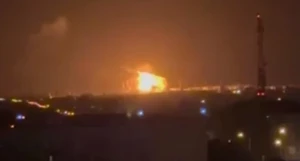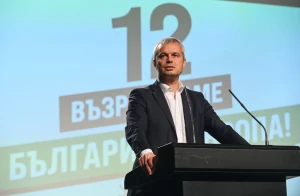
On pros and cons of democracy in war against Russia
Any competitive democracy with institutions and separation of powers means procedures and bureaucracy
The Wall Street Journal has published an article highlighting the mistakes of our partners. We have extracted mainly this point: "Ukraine's counter-offensive may be stalled by lack of weapons and training for Ukrainian military" and ran around with it. Of course, some of our audience saw it as a betrayal, that we are getting screwed and everything was bad.
As for the counter-offensive. The WSJ writes that there was no quick breakthrough. Thank you, captain. And that the campaign may reach a dead end. Or maybe not. Because you can find 10 publications saying that the Ukrainian Armed Forces have changed their tactics and adapted to the Russian defence strategy. And it's good that the Western press writes about the mistakes and indecision of the United States, not that Ukraine is somehow different. If only our useful (for Russia) idiots understood this.
Three factors are slowing down the Biden government:
1. The burden of internal social, economic, and political problems.
2. Fears of Putin's "red lines", which are receding slowly. But they are receding.
3. A possible clash directly with China, which requires a lot of resources.
So far, we should be encouraged by the dynamics of decision-making in the US, because there was every reason to expect much worse. Biden is not Roosevelt. We just have to take it for granted.
“But in addition to the current situation, there is a fundamental factor that slows everything down. And it is also the biggest strategic advantage. Although it is expensive in the short term”
Any competitive democracy with institutions and separation of powers means procedures and bureaucracy. It takes time for a document on the allocation of weapons to go from Biden to the military, then to the department of stocks and logistics, then back, then to be approved. This is insurance against usurpation, if anything. And that's what we want too. Although there are nuances during acute crises.
“No one in the world was prepared for a long continental conventional war that would burn hundreds of tanks, thousands of armoured vehicles, and millions of shells in its crucible. And - worst of all - tens of thousands of lives. That is why the military-industrial complexes of Europe, the United States, Ukraine, and even Russia itself were not ready for this. Many warehouses and arsenals have not been replenished since the Cold War”
To ramp up production, you need to go through the same circle: political approval, consultations, guarantees for private producers that orders will not stop in a year and that they can invest in equipment and production lines. Then you need to find specialists and engineers. And there are a lot of problems and traps along the way.
But both the military-industrial complex and political decisions are like minced meat, you can't roll them back.
1. Once the military-industrial complex is launched, it is impossible to stop it quickly. Because the industry will be against it, and the military lobby is powerful. That is why we are ordering weapons for the future. And that is why the stockpile of shells will be replenished to provide orders for the military-industrial complex.
2. Once the bureaucratic machine has been cranked up to impose sanctions on Russia, to implement aid programmes for Ukraine, to seize and confiscate assets, it is very difficult to turn it back down, because
-
While sanctions were being imposed, there were those interested in maintaining them. For example, US energy companies.
-
Russia will not lose its status as an inadequate country, and the resistance to easing the sanctions will be enormous. Even if there is a desire to do so, this is not yet evident.
Yes, we want it to happen quickly. But it will be as it is.
We have reasons to be dissatisfied with the tardiness of our partners. And they have reasons to be dissatisfied with us. But we are too much in the same boat. And the Europeans, who are now much more determined, will continue to put pressure on the US. So I am sure we will soon see new arms supplies. Along with the revitalization of the military-industrial complex.
The war will continue for a long time. We need to work. We need to put pressure on our partners. But running around screaming "we are being betrayed" is unreasonable. Everything is going quite normally. The industrial, technological, and financial potential of the pro-Ukrainian coalition is disproportionately greater than that of Russia and its partners. We lose less in the offensive than the defending side. And this is what the Armed Forces are doing, and this is why we will win.
About the author. Yuriy Bohdanov, publicist, specialist in strategic communications in business, public administration and politics.
The editors do not always share the opinions expressed by the authors of the blogs.
- News














































